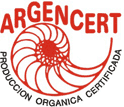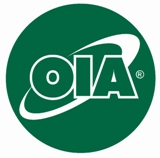BioFach press release
High-quality organic wines, fair traded at stable prices
World's biggest organic wine exhibition invites to tasting
Organic wine is on the advance. The wine shelves in the organic trade are getting bigger, the conventional retail food trade is also becoming interested in organic wine, and organic cultivation is gaining more and more acceptance among the producers of top wines. Tendencies and trends that increasingly start at BioFach, the biggest organic wine exhibition in the world. Approx. 250 suppliers of wine, sparkling wine and champagne will also exhibit at BioFach 2006 in the Exhibition Centre Nuremberg from 16-19 February. They naturally come from the leading organic winegrowing nations Italy, France and Spain, but also from countries like Argentina, Chile, Germany, Greece, Austria, Turkey or Hungary. Not only the well-known wine regions have an extensive range of wines to show, but smaller, less-known regions as well. The wine hall in hall 8 also presents supplementary ranges for wine merchants, with accessories like glasses and carafes. Wholesalers, winegrowing associations and wine merchant associations are also present at the exhibition with their winegrowers and other contacts.
Entry for the BioFach 2006 International Wine Award is open to any organic winegrower. Last year, 461 organically produced wines from all over the world faced the highly sensitive sense organs of the tasters, who were extremely satisfied and selected wines for 26 gold awards, 35 silver awards and 67 recommendations. Prizes will be awarded to top international organic wines in the categories white, red, rosé, sparkling and dessert wine for the eighth time at BioFach – as part of the official tour of the exhibition by the guests of honour immediately after the official opening. Other above-average wines will be specially mentioned in a recommended list. The award at this year’s exhibition is also preceded by a public tasting session by internationally recognized members of a jury in November/early December 2005. All the winning wines will naturally be presented in guided tasting sessions at the exhibition.
Signs of a new era dawning: Quality and opening up of the market
The top-quality growers are creating a strong impetus for organic viticulture. More and more renowned winegrowers are basing their production on environment-friendly organic methods. In the elite German wine club VDP (Verband der deutschen Prädikatsweingüter), 10 % of the member firms already work to organic guidelines – tendency rising. Three top firms from the Rhinegau and Palatinate regions are currently converting to certified organic cultivation.
Organic wine producers have long ceased to be exotic creatures. Working with natural fertilizers and pesticides and doing without herbicides are also recognized by conventional producers as a way to achieve higher quality, which some of them have adopted.
Quality improvement through biodynamics
The events of the "Vignerons d’Exception" (exceptional winegrowers) attract great attention at international level. This loose union of Loire winegrowers was founded by Nicolas Joly, the philosopher of biodynamic viticulture. His creed is to improve the terroir, i.e. the origin character of the wines, through biodynamic methods. Besides the natural processes, this works with fertilizers and pesticides with special preparations for strengthening the plants and takes planetary forces into account. Today, biodynamics is on the up among top growers throughout the world.
At a time when the world's wines are becoming increasingly similar due to the standardization of cellar techniques, the terroir argument naturally attracts a great response. The "Vignerons d’Exception" meanwhile include organic producers from Europe, America and Australia. The presentations also take place around the globe. The concentrated presence of top firms from all over the world contributes substantially to improving the image of organic wine.
Organic viticulture: Italy leads, Spain and France are catching up
Italy heads the organic wine statistics with approx. 30,000 hectares of vines. France and Spain, where there have been large increases in the past years, each account for about half as much. Just under 2,000 hectares of vines in Germany are grown by organic methods.
Organic viticulture is growing rapidly in countries overseas: California leads with about 3,000 hectares, but the current shooting star in the organic wine sky is Chile, where some well-known producers are converting large parts of their vineyards. They will soon be among the largest organic wine producers in the world. There are also significant organic winegrowing areas in Australia and Argentina. A visible indication of this trend is the growing presence of wine producers from overseas at BioFach every year. The European market is of maximum importance for these producers.
Organic wines now fair traded, too
Parallel to this trend, wines from overseas are gradually becoming socially acceptable in the organic trade. The wines from California play a pioneering role here, but these are restricted to the high-price segment. However, more and more low-cost organic wines from Chile, Argentina and South Africa are now attracting attention.
The successful combination of organic and Fair Trade certificates is now also arriving on the wine scene. The Fair Trade label distinctly reduces the reservations that still exist about wines from overseas because of the long transport routes. A South African organic wine producer has already been granted Fair Trade accreditation, and a small farmers co-operative in Argentina is about to be accredited.
Wine profits from the organic boom
There is currently also a strong impetus from the demand side. Worldwide organic turnover in 2004 grew by some 6 % to about 26.5 billion US $ (equivalent to approx. 21.7 billion EUR), according to estimates by the London marketing and consulting company Organic Monitor. In Germany alone, last year’s organic turnover rose by as much as 13 % to 3.5 billion EUR (ZMP, Zentrale Markt- und Preisberichtsstelle für Erzeugnisse der Land-, Forst- und Ernährungswirtschaft), which also boosted organic wine sales. The trend to organic supermarkets continues, which also pushes the demand for organic wine, as a broad range of 100 to 200 wines are offered in stores with 500 to 1,000 m² of shop space. Here the share of turnover for wine is 2 to 5 %. "Alternative" outfits for wine are now out and more and more organic wines appear in an elegant outfit. The consumer can then recognize the special value of the product more easily and tends to accept the slightly higher price.
Variety of products and steady prices
The international wine market has been marked by overproduction in the past years. The result is heavy pressure on the prices. For many a producer, conversion to organic cultivation was a way of escaping this pressure. The large conversions especially in Southern Europe and recently also in countries overseas have, however, shifted the weightings. Today, every buyer can choose between many offers. The price pressure is now also growing in the organic wine market. This is mainly encouraging for consumers, as they discover that prices remain steady, and even drop in some cases. The difference over conventional wine prices is becoming smaller and smaller and even tends towards zero for high-quality wines.
Discreet organic labelling for wine
The German retail food trade has been active in the organic market for a long time. The large chains operate successfully with their own organic labels. Wine has been the only product until now that they are conspicuously reluctant to stock. There are now increasing attempts to pick up points in this market as well, but most companies do not use their organic labels here. On the contrary, they focus on the regional origin of the wines, as organic cultivation is regarded as an added benefit particularly for wine, more or less the icing on the cake after the taste and outfit factors.
The best survey of the international organic wine market is offered by BioFach in the Exhibition Centre Nuremberg from 16-19 February. The 2006 event will again do justice to its outstanding reputation as the world’s biggest organic wine exhibition. Altogether, the World Organic Trade Fair expects a good 2,000 exhibitors and 33,000 visitors.
More information about the biggest organic wine exhibition in the world: www.biofach.com/press
















